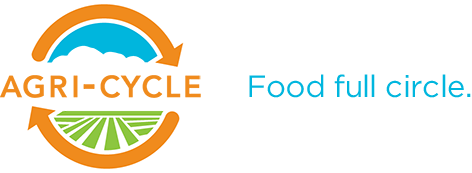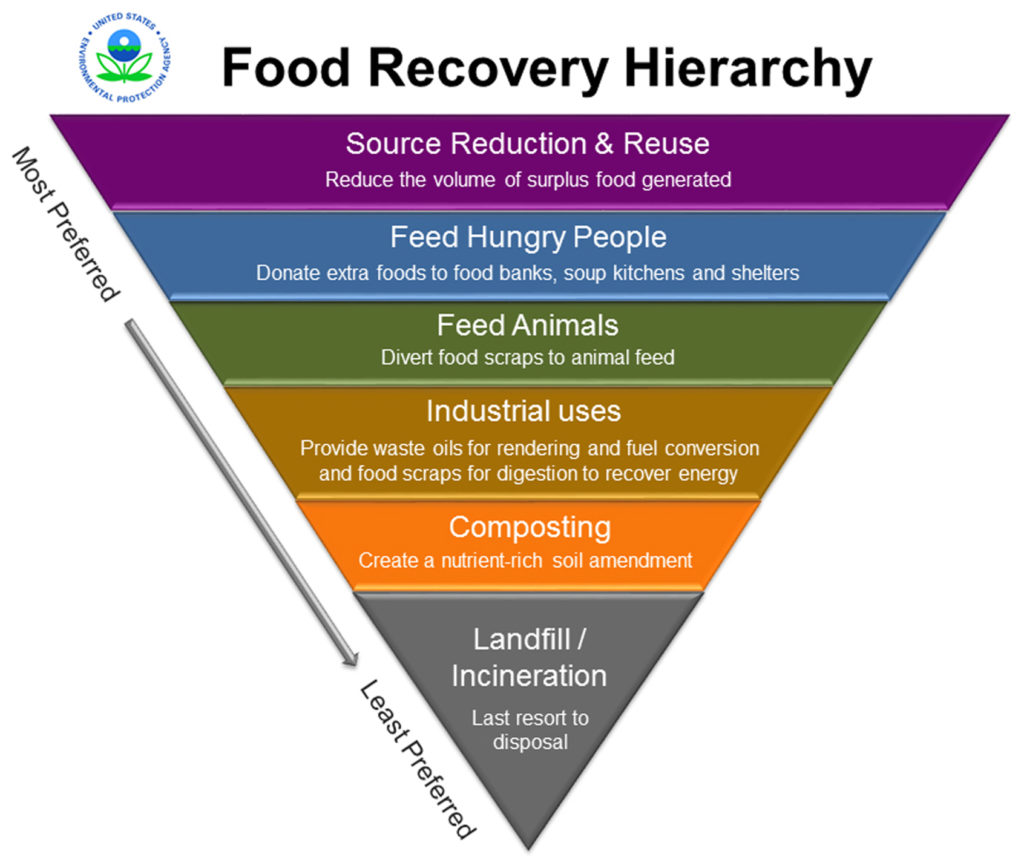Sustainability for businesses is more than just good PR and social media posts – it’s a major task performed by governments, businesses, and organizations big and small, local and countrywide, to make the world a better place. While Agri-Cycle works tirelessly to keep commercial, industrial, and residential food waste out of landfills and treatment plants, we also believe that preventing and reducing food loss and waste at the source is the best form of this type of sustainability practice.
Understanding Food Loss and Waste for Businesses
In November of 2021, the US EPA released a study titled From Farm to Kitchen: The Environmental Impacts of U.S. Food Waste that documented Food Loss and Waste (FLW) from the source of agriculture to landfill. The document (which we highly recommend reading) focuses on both the resources wasted and the products caused when food is lost or wasted during this pipeline. Some of the key takeaways of US Food Waste:
- Greenhouse Gases: Food waste causes the same amount of greenhouse gases as 42 coal-fired power plants. This excludes methane emissions from food rotting in landfills.
- Resource Use: Food that is lost or wasted uses water and energy in its growth, transportation, and processing which could supply 40 million homes.
- Land Use: The amount of agricultural land that is used to grow FLW is equal to the states of both California and New York combined.
Reducing and Preventing FLW at the Source
If you’re still reading, chances are your business or organization is somewhere on this line from the cradle to consumption and causes FLW that contributes to those staggering figures. Thankfully, in the same report, the EPA goes over solutions. Top among them:
The greatest environmental benefits can be achieved through prevention rather than recycling.
There are many ways a company can go about this, many of which depend on where you are in the process. For farms, it might be working on policies and procedures to make sure more of the crop makes it to market, while for manufacturers, it might be looking at what they can do to redirect that lost food in the first place. One option most businesses can look at is its higher use: how to get perfectly usable food and food products to food banks and rescue operations, especially for grocers and other final product companies.
How Agri-Cycle Can Help with FLW
- Reduction: We’ll use our 65+ years of collective experience in the food waste industry to implement simple but effective techniques. For example, how to stock produce without sacrificing goods for presentation and marketing your “reduced price” section.
- Food Donation: We work with a number of food banks, rescue operations, and other organizations throughout New England to Virginia with the focus of getting food to hungry mouths that would otherwise be thrown away. We can consult with you on best practices and processes to ensure you maximize your savings while having the lowest environmental impact possible.
- Food Waste Management: If your food waste cannot be prevented, we will mitigate it sustainably through the use of anaerobic digestion to create renewable energy, organic fertilizers, and other products, as well as composting. Even works with non-donatable packaged food products.
At Agri-Cycle, we’re committed to preventing and reducing food waste, helping fill mouths and not landfills. Alongside being a food waste collection service, we can provide consultations for your particular needs and help connect you with donation services in your area. If you’re looking to make a difference in food loss and waste, making a difference not just to the environment but your bottom line, contact us today to get started by getting a quote or calling us at 1-800-850-9560.

